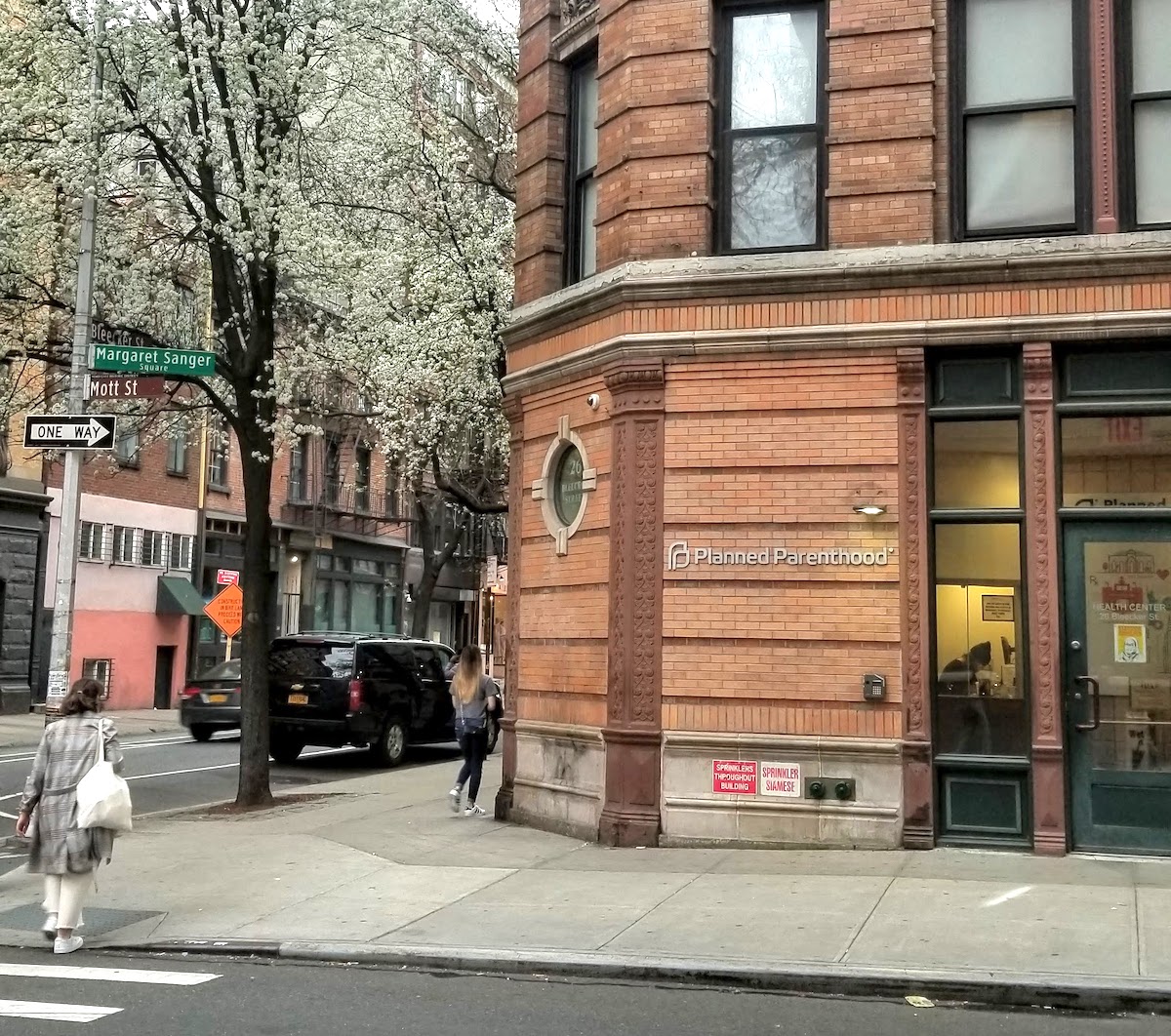
On Tuesday, the New York branch of Planned Parenthood announced that they’re removing birth control activist and Planned Parenthood founder Margaret Sanger’s name from their Manhattan Health Center, citing her eugenicist beliefs. In a statement, Planned Parenthood of Greater New York called the removal “both a necessary and overdue step to reckon with our legacy and acknowledge Planned Parenthood’s contributions to historical reproductive harm within communities of color.”
Sanger, who has been hailed by many as a feminist hero for her lifelong dedication to making birth control accessible and safe, saw birth control as a tool for limiting the populations of those unable to afford children, supported sterilization for those with disabilities, and promoted restricted immigration based on mental and physical “wellness”. In his 2011 book A History of the Birth Control Movement in America, Peter Engelman notes that despite keeping her language around race vague and individualistic, “Sanger quite effortlessly looked the other way when others spouted racist speech. She had no reservations about relying on flawed and overtly racist works to serve her own propaganda needs.”

Some right-wing journalists and commentators were quick to respond to Planned Parenthood’s decision, and have used it as evidence for their pro-life agendas. Sanger’s eugenicist beliefs have long been a talking point for anti-abortion activists, with critics claiming that Planned Parenthood continues to carry out Sanger’s vision of eugenics through their widespread reproductive health services. In 2015, Senator Ted Cruz opposed a display of Sanger’s bust at the National Portrait Gallery, stating, “There is no ambiguity in what Margaret Sanger’s bust represents: hatred, racism, and the destruction of unborn life.” It is notable, however, that Sanger opposed abortion for much of her career, and saw birth control as a way to prevent women from turning to the procedure. Some Planned Parenthood critics also claim hypocrisy on the part of the organization, pointing to their recent history of defending Sanger, especially their 2016 fact sheet which claimed that “there is no evidence that Sanger, or the [Planned Parenthood] Federation, intended to coerce black women into using birth control.” The fact sheet does critique Sanger’s support of the eugenicist movements of the early 20th century, but does ultimately advocate for a largely favorable view of her accomplishments.
Another perhaps surprising critic of Planned Parenthood’s racist legacy is rapper turned presidential candidate Kanye West, who has made abortion a key issue in his campaign. He recently shared with Forbes his belief that “Planned Parenthoods have been placed inside cities by white supremacists to do the Devil’s work,” and named the bible as the source behind his pro-life stance. Though he did not point to Sanger by name, his sentiments echo those of her right-wing critics. Later, though, at a rally in North Carolina, in the midst of what many have since described as a manic episode, West shifted to a more personal anti-abortion narrative. He shouted, “She had the pills in her hand! I almost killed my daughter!” in reference to his wife Kim Kardashian West, and their 7-year-old daughter North. Kardashian West, however, has been an outspoken advocate for Planned Parenthood in the past, visiting one of their facilities on an episode of Keeping Up With the Kardashians, and also recently shared her concerns around her husband’s mental health, and has asked the press for “compassion and empathy” toward their family situation. Though the status of West’s presidential campaign remains foggy, his statements about abortion have certainly stoked the fires of the current debate about Planned Parenthood, especially as the organization grapples with their racist legacy.

Sanger, though, still has outspoken defenders, most notably Ellen Chesler, an author who penned a biography about the birth control advocate in 2007. She tells the New York Times that she believes Sanger rejected the eugenicist belief that white middle class families should have more children than marginalized groups, and that “[Sanger’s] motives were the opposite of racism,” pointing to her positive relationship with Black thought leader W.E.B. Du Bois. Other Sanger advocates direct attention to her creation of a clinic in Harlem to give underserved Black women access to birth control, and the subsequent praised she received from Martin Luther King Jr. Her critics, though, see this work as her carrying out her desire to stifle reproduction in Black communities.
Though Planned Parenthood has publicly recognized Sanger’s racist legacy, and has committed to “Divest[ing] from and dismantle[ing] white dominant organizational cultural norms and values,” they are sure to draw a line between past and present. Director of Black Leadership and Engagement Nia Martin-Robinson tells Forbes, “Any insinuation that abortion is Black genocide is offensive and infantilizing. At Planned Parenthood, we trust and we stand with Black women who have, and continue to lead the charge when it comes to the health, rights and bodily autonomy of those in their communities.” In an effort to reconcile the organization’s conflicting legacies, chief equity and engagement officer Merle McGee stresses the importance of continuing to contend with Sanger’s life and work, even after her name is stripped from the Manhattan clinic. “We’re not going to obliterate her,” she tells the New York Times, “If we obliterate her, we cannot reckon with her.”


